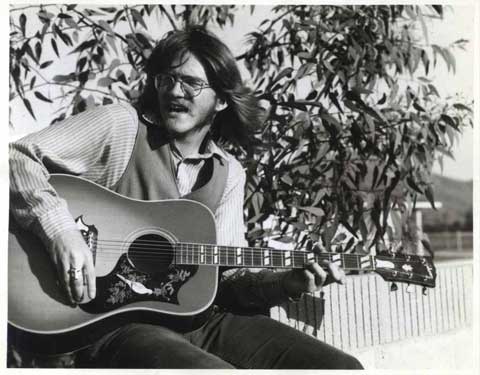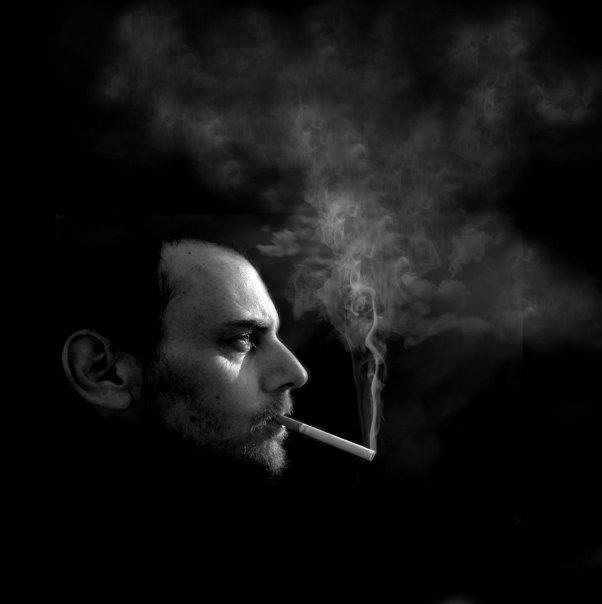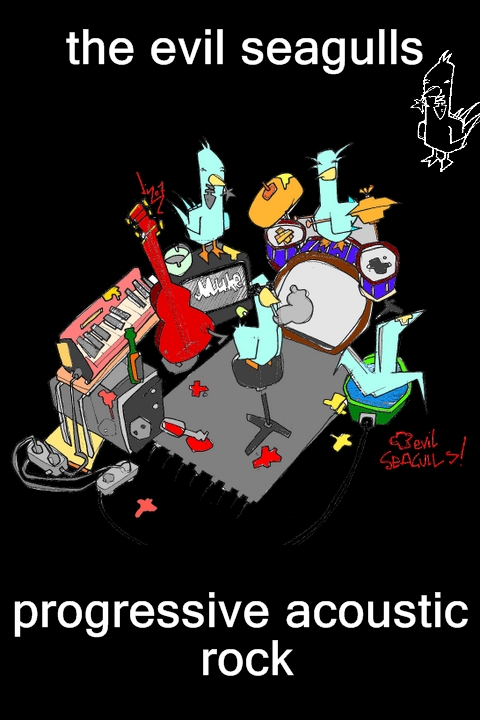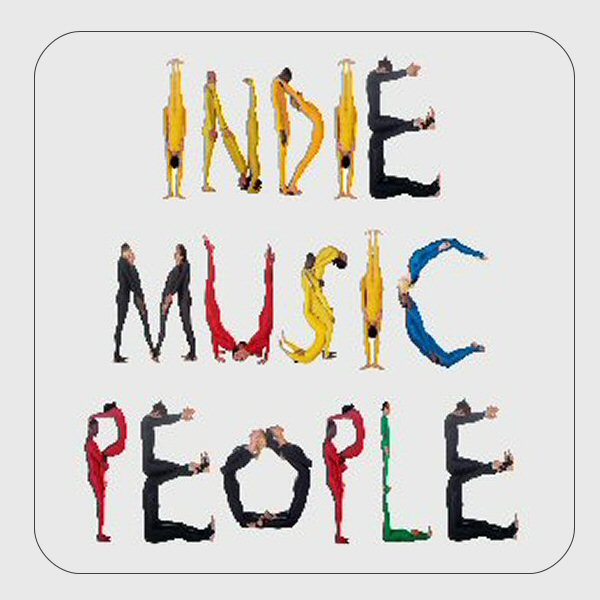Real Gone is the unpredictable follow-up to the atmospheric and conceptual Alice and Blood Money, two albums that TOM WAITS released simultaneously in the spring of 2002. In an exciting departure from the critically acclaimed Alice and Blood Money, Waits’ fevered imagination has spawned a new musical hybrid, grafting together worlds both sonic and ethnic from musical traditions both old and new. The 15 track CD features: primal blues, Jamaican rock-steady grooves, rhythms and melodies both African and Latin, what Waits calls “cubist funk.” In that sonic cubism, Waits ingeniously finds common ground with hip hop’s cut and paste aesthetic and incorporates some of its elements into his approach. Many of the tracks on Real Gone were built on Waits’ “human beatboxing” on a cassette recorder in his bathroom and bringing those tapes into the studio to have the band play over them. As a result, there are no drums on many of the most driving tracks as his voice provides all of the necessary propulsions. And for the first time, there is no piano.
“Real Gone is an electric pill box, a homogeneous concoction of mood elevators, mind liberators and downers, an alchemical universe of rattling chains, oscillating rhythms and nine-pound hammers,” says Waits.
Real Gone (Anti Records)--written and produced by Waits with his wife and long time marital musical collaborator, Kathleen Brennan--is released October 5th 2004.
Tom Waits, according to the esteemed American critic Robert Hilburn, is “clearly one of the most important figures of the modern pop era.” Such sentiments are not mere hyperbole; in a career that now spans four decades and over 20 albums, Tom Waits has long since emerged as an extraordinary innovative force, a singular voice whose music remains determinedly--and even gloriously--well beyond the fads and fashions of popular culture. Waits’ latest release, Real Gone, adds further weight to his reputation.
In 1999, Waits released his first album for Anti Records, the Grammy Award winning Mule Variations. Most recently, Waits has contributed “Little Drop of Poison” to the Shrek 2 soundtrack and recorded “King Kong” for the Daniel Johnston tribute album, Waits also collaborated on a song with The Eels for an upcoming album, as well as with Los Lobos on their most recent release The Ride. Waits contributed a song titled, “Day After Tomorrow” from the new record to the Future Soundtrack of America, a compilation album supporting an administration change due out this summer on Barsuk Records. Notably, “Day After Tomorrow” is Waits’ first overtly political song and it works so beautifully because of its timelessness, which is unique for a song of this genre.
On the theatrical side, The Black Rider is making its North American premiere at A.C.T. in San Francisco on September 1, while on the big screen, Waits can be seen opposite Iggy Pop in Jim Jarmusch’s critically acclaimed film of vignettes, Coffee & Cigarettes.
Waits has built a career as varied as there are creative outlets--delving into cinema (both composing and acting), musical theater, opera, live performance, and literature--yet seamlessly interweaving a truly distinctive and fully-realized persona. The tools of his trade have included such things as the marimba, trombone, brake drum, metal aunglongs, banjo, bell plate, bullhorn, conga, accordion, optigon, mellotron, maracas, pump organ, basstarda, chamberlain, harmonium, viola, sticks, chairs, a musical saw, as well as the regular old guitar, bass, piano and drums and, of course, his trademark gravelly voice.
For over 30 years, his music has taken adventurous turns, from confessional country-blues and jazz-flavored lounge, to primal rock and avant-garde musical theater. By turns tender and poignant, to strange and twisted, his songs tend to explore the dark underbelly of society as he gives his uniquely human voice to adventurers both romantic and mercenary, drifters, con artists and those forgotten characters on the fringe and in the fray. Waits has expanded and drawn from a deep well of American and European song idioms: folk, blues, country, jazz ballads, polkas, waltzes, cabaret, swing, popular ballads, and a category that can only be described as Waitsian.
In the early ‘70s, Tom Waits was working as a doorman at the Heritage nightclub in San Diego, where artists of every genre performed. An avid fan of many writers and musicians, among them Bob Dylan, Lord Buckley, Hoagy Carmichael, Marty Robbins, Raymond Chandler, and Stephen Foster, Waits began developing his own idiosyncratic musical style, combining song and monologue. He took his newly formed act to Monday nights at the Troubadour in Los Angeles, where musicians from all over stood in line all day to get the opportunity to perform on-stage that night. Shortly thereafter, Waits was signed to Asylum Records. He was 21 years old.
Waits’ first formal recording, Closing Time was released in 1973 and contained the song, “Ol’ 55,” which was also covered by his labelmates The Eagles for their On the Border album. He began touring and opening for such artists as Charlie Rich, Martha and the Vandellas and Frank Zappa. Waits gained increasing critical acclaim and a loyal cult audience with his subsequent albums: The Heart of Saturday Night (1974), Nighthawks at the Diner (1975), Small Change (1976), Foreign Affairs (1977), Blue Valentine (1978) and Heartattack and Vine (1980). It was an incredibly prolific period for Waits, establishing his reputation as a visionary songwriter.
In 1983, a year after the release of his Oscar-nominated song score for Francis Ford Coppola’s One from the Heart, Waits signed a new recording contract with Island Records and released the album Swordfishtrombones. It marked a creative and startling turning point, with its visceral hybrid of styles and instrumentation, which secured him a whole new generation of listeners. He began experimenting with ethnic instruments, altering the sound of his voice, trying unusual recording techniques and utilizing found sounds and bizarre textures. His trademark storytelling backed by his piano and a combo mutated into impressionistic and surreal aural landscapes, and at a time in the ‘80s, when hair and recording got slick and big, he went “lo-fi” primitivism and helped set off a whole new aesthetic that has inspired a generation of new artists.
This period of bold experimentation continued with Rain Dogs (1985)and Frank’s Wild Years (1987), which, with Swordfishtrombones, formed a landmark trilogy, one of the most accomplished achievements of the decade. They were followed by Big Time (1988), which was a film and soundtrack album of his acclaimed 1987 tour (which was named “Tour of the Year” in Rolling Stone magazine), Bone Machine (1992), for which he won a Grammy for Best Alternative Album and The Black Rider (1993), a recording of the songs and music he wrote for the award winning avant-garde opera based on the German folk tale that was adapted by Beat novelist William Burroughs for director Robert Wilson.
So successful was The Black Rider, Germany’s longest running and most influential show of the ‘80s, that Robert Wilson later commissioned Waits and his wife, Kathleen Brennan, to compose the songs and music for two further ‘street operas.’ The first, Alice, based on Lewis Carroll’s life and works, premiered in Hamburg at the end of 1992 while the second, Woyzeck (a nightmarish 19th century play by Buchner of a cuckolded soldier who murders his girlfriend), opened in Denmark eight years later and was named Best Musical of the Year by Danish critics. Woyzeck has had over 275 performances throughout the world--including Japan, Russia, New York, Los Angeles, London, Rome and Serbia. The songs from both works later appeared on Alice and Blood Money, the albums that Waits released in 2002.
In retrospect, it was inevitable that an artist so steeped in imagery as Tom Waits should be naturally fascinated with the cinema. His first steps in that direction came when he wrote songs for Sylvester Stallone’s 1978 movie Paradise Alley, in which Waits also has a cameo appearance. He then wrote and performed two songs for Ralph Waite’s acclaimed portrait of skid row, On the Nickel (1980) before being entrusted with the soundtrack for Francis Ford Coppola’s One from the Heart. Waits succeeded magnificently, his soundtrack—(featuring duets with country singer Crystal Gayle)--becoming an enduring classic of American cinema. One from the Heart also won Waits an Academy Award nomination. It was the start of a long relationship with Coppola, immediately evidenced by Waits’ appearance as an actor in the director’s Rumble Fish, The Outsider, The Cotton Club and as the unforgettable Renfield in Bram Stoker’s Dracula. In 1986 Waits appeared in Jim Jarmusch’s Down by Law, a film which coincidentally marked the international debut of Italian actor Roberto Benigni. That same year Waits made his theatrical stage debut with Frank’s Wild Years, a musical play he co-wrote with Brennan, at Chicago’s Steppenwolf Theatre. Later film appearances included Ironweed, Queen’s Logic, The Fisher King, At Play in the Fields of the Lord and another Jarmusch movie, Night on Earth, for which Waits and Brennan composed the score. Waits also had memorable acting turn in Robert Altman’s Short Cuts.
Following the release of The Black Rider in 1993, there would be a six-year hiatus before the next Tom Waits album. In those intervening years, however, he devoted himself to an array of different musical projects, including songs and music for the aforementioned theatre work, Alice. Waits and Brennan also wrote two songs for the Dead Man Walking soundtrack album and contributed the song “A Little Drop of Poison” for the Wim Wenders film, The End of Violence. In 1998, Waits and Brennan composed the score and a song for Bunny, which won the Oscar for Best Short Film (Animated). That same year Tom and Kathleen wrote two songs for Barry Levinson’s film Liberty Heights.
In between this film work, Waits also recorded a vocal for English composer Gavin Bryars’ remarkable 75-minute orchestral essay, Jesus’ Blood Never Failed Me Yet. The work centered around a 1971 field recording of a London hobo singing a religious tune; on Bryars’ album Waits duets along with the voice of the tramp.
In 2000 Waits and Brennan composed “The World Keeps Turning” for the end credit to Ed Harris’s film Pollack. More recently the pair also wrote two songs for director Arliss Howard’s Big Bad Love–-one of the songs, “Long Way Home,” was later covered by Norah Jones on her multi-platinum album, Feels Like Home.
In 1999 Tom Waits returned to the limelight with Mule Variations, his first album in six years and his debut for the independent label, Anti/Epitaph. The album, which synthesized Waits’ affinity for the American song tradition with his love of naturalistic sound worlds, was arguably the most direct and intimate album of his career. It was certainly the most successful, selling over a million copies around the world--in the UK it was Waits’ first-ever Top 10 hit and it made for Waits’ highest US chart debut (#30), while also winning a Grammy.
Following the release of Mule Variations, Waits also returned to the road. A legendary live performer, his appearances are rare, extraordinarily memorable and highly anticipated events. Part distorted vaudeville, part big top, part piano bar and part stand-up, the iconoclast’s live shows are meticulously orchestrated to have all the grace and excitement of a derailing train--as those lucky enough to have seen any of his tours can testify.
Named as one of VH1’s Most Influential Artists of All Time, it is no surprise that Waits’ body of work has long been covered (and coveted) by other musicians. In addition to Norah Jones, most recently Diana Krall recorded “Temptation” for her latest Girl in the Other Room. Other notable cover versions include Bruce Springsteen “Jersey Girl”; Rod Stewart and Everything But The Girl “Downtown Train”; Johnny Cash “Down There by the Train”; Marianne Faithfull “Strange Weather”; The Ramones “I Don’t Wanna Grow Up”; 10,000 Maniacs “I Hope I Don’t Fall in Love with You”; Tim Buckley “Martha”; T-Bone Burnett “Time”; Bob Seger “Blind Love”; Lucinda Williams “Hang Down Your Head”; Los Lobos “Jockey Full of Bourbon”; Elvis Costello “More Than Rain”; The Blind Boys of Alabama “Jesus Gonna Be Here”. And there is the critically acclaimed collection of Waits’ songs recorded by John Hammond, Wicked Grin.

Comments
View All

Andra
|
3/22/2010 8:09:17 AM
greetings from Namibia!
much much respect!
~a
|

|

weAponX
|
9/14/2009 9:36:34 PM
I saw you at the BACK DOOR at Diego State!
|

|

Conversation Suicide
|
12/26/2008 9:15:18 PM
Tom, I'm one of your biggest fans.
Welcome to PHLEGM PHAVORITES
and
PHIFTY PHLEGM PHAVORITES
Tom your my absolute PHAVORITE Singer/Songwriter/Actor out there.
-pHLeGm of CoNVeRsaTiOn SuiCiDE
|

|

tom lee
|
9/30/2008 8:10:53 AM
hey tom nice to see and hear you here
|

|

Richard Scotti
|
9/30/2008 8:05:44 AM
Tom - I love and respect your work and it reflects in some of the music that I write.
I write songs for other people to sing. This gives me the freedom to write in very different styles. The style that pays homage to your sound is represented by the songs links posted below. I'd be honored if you heard any one of them. Nick Holmes sings.
Goddess
Borrowed Time
Not Goodbye
|

|

The Evil Seagulls
|
8/24/2007 4:57:44 AM
hey there,
we've got a new song - dream on - hope you enjoy the mixture of old-school progressive and acoustic balladesque music.
cheers,
mark
|

|

SILVERWOODSTUDIO
|
6/5/2007 3:21:51 AM
get behind the Mule!
|

|

Wickman Music
|
3/16/2007 10:57:40 PM
I've just been listening to the "OPRHANS" album again, probably my tenth listen so far. I'm sure you don't need judos from myself, but I thought, what the heck, doesn't hurt, at tihs point, to give my impression, for whatever it is worth, of this 'delicious' plunge into territory that does anything but yield to the dictates of fashion. My favourites, so far, are King Kong, Dog Treat, Missing Son, Altar Boy, On the Road To Peace (which you've got playing here), and Putting On The Dog. However, with each subsequent listen, I am finding that the others do grow on you too. There's so much to digest in this album, but once you've acquired the taste, you are hooked. Missing Son is a treat. A wonderful leg puller, that one. I won't say more thn that though lest I ruin the surprise ending for others. Dog Treat had me in stitches too. And the retlleing of the tale of King Kong...well worth listening to...it'll keep you just as riveted to your seat as the movie. Is it a love song? I just have one question to ask about that one...is it a love song? No matter...enjoyable listen whatever it is!
I bought the album from a friend for another friend, but in the end, selfishness overtook me, and I decided to keep it for myself. These days, I find myself very picky in what I'll keep in my collection of CD's. This highly imaginative album, however, is going to stay.
That, for whatever it is worth, is my two cents worth. Hope you don't mind the comment!
Bryan Anthony
www.wickmanmusic.com
|

|
| |
|
View All
|
IndieMusicPeople.com
�2015-2016 Indie Music
People All Rights
Reserved